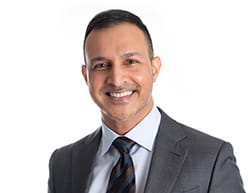The tribal, familial structures of Arabian Gulf society have created a number of variants in national government, shared, with one common feature; a social contract between the ruling family and the people – you permit us to rule and we will look after you.
In the GCC, this has often meant subsidised food, utilities, housing, education and healthcare and in some cases monthly stipends, but as the oil price has suffered a dramatic decline, strains have been placed upon this traditional model. Economies have been maturing and populations growing and it has become clear that governments have to come up with fresh ideas.
"The tension for government is what happens when they are not able to look after people in way they have always been expected to," explains Abdul-Haq Mohammed, international managing partner at Trowers & Hamlins, who is based in the firm's Bahrain office.
"Transitioning from this subsidised system to being a liberalised, free-market economy which is part of a global market is going to play out differently in the different parts of the GCC," says Mohammed, "but many of the underlying questions are going to be the same, and you need to build modern structures and systems to support the direction you take."
PPP (Public-Private Partnership) – heavily- used in the UK in the 1990s and early 2000s – has long been seen as a way to attract private finance so that GCC governments can build the kind of social infrastructure such as schools, hospital and more affordable housing that underpin the transition from traditional petro-economies to more complex modern economies with greater social utility.
But as observed by Peter Greatrex, real estate partner in the Bahrain office, getting PPP projects off the ground is more complicated than just saying 'go'.
"The first PPP in the region took place over 20 years ago, and since then relatively few successful examples have crept in. There have been some false dawns during that time, when it seemed like we would see a flurry of them. It's not just that it has taken all that time to develop the law (with most PPPs being launched without legislative frameworks in place), but that there are serious structural issues.
The markets here aren't liquid, there's a difficulty in securing and registering assets, and the traditional, informal business structures have meant there's been a great challenge in getting people to adopt clear roles and responsibilities. Plus you have a desire within governments to continue to benefit from broad rights to get out of the contract at any point, but we're talking about long-term contracts with securitised income streams, and that's just not possible. At least, not without serious financial consequences and considerable damage to reputation."
Trowers recently advised Bahrain's Ministry of Transportation on its Pathfinder PPP project to create a modernised bus network, which has trebled the number of bus routes across the Kingdom and introduced a brand-new 141 bus fleet with on-board infotainment, free wi-fi and full disabled access, with passengers benefiting from 400 new bus shelters. Trowers is also working for a GCC government on the planning stages of a high-speed rail network for the GCC.
Projects like this are vital in demonstrating how private capital can enter the market in a long-term, sustainable way, but as Abdul-Haq Mohammed points out, the lure of sophisticated, high-return financing carries great risks for the Gulf economies.
"In the GCC there's an echelon of society which is very much steeped in neoliberal thinking," he says. "There are tons of investment banks in Bahrain alone – we'd understand them more as private equity houses – and for a while it seemed that every major family had its own bank. Many in the finance world have seen this as an opportunity to take very clever thinking on synthetic securities from New York or London and transplant it into the GCC. But it is not as simple as that. The financial infrastructure and expertise has not fully caught up. Valuation remains inconsistent and there is still a lack of the transparency required to make pricing and valuation more reliable."
It is possible that the traditional, family structure which dominates business and government in the GCC, has also acted as a hindrance. "The financial crisis lasted longer in some places because some prime investors were unwilling to take write-downs on their assets" explains Mohammed. "Unlike institutional investors in the West, who took the pain as part of the business cycle, here it can be very personal and it sometimes appeared family prestige was at stake."
But things are changing. While challenges remain, the current socio-economic environment in the region may mean that the GCC markets are finally ready to embrace PPP projects.
In Saudi Arabia – still the most socially- conservative nation in the Gulf – the unveiling of the Vision 2030 plan, which will position the kingdom in the Top 15 economies in the world, comprises a range of social targets which will require public- private funding models in order to deliver.
"For those plans to be fully realised, it will be key for Saudi to liberalise its ownership regime," says Greatrex.
"Historically it's been pretty protectionist, and it's been easier to deliver projects via procurement than PPP, but they have done a few. Projects also need to be achievable. It does not need to be the biggest, grandest or first of its kind, but marketable, bankable and deliverable."
Mohammed thinks the introduction of tax could be the tipping point for PPP and other private sector initiatives across the region. "Most of the GCC is looking at introducing taxes," he explains. "The UAE will be first, and it will be VAT. But the thing with a government-imposed tax is that there is a requirement for audit, for greater transparency. Information needs to be consistent and readily-accessible. And that, more than any other single tool, is going to drive change across the GCC."
